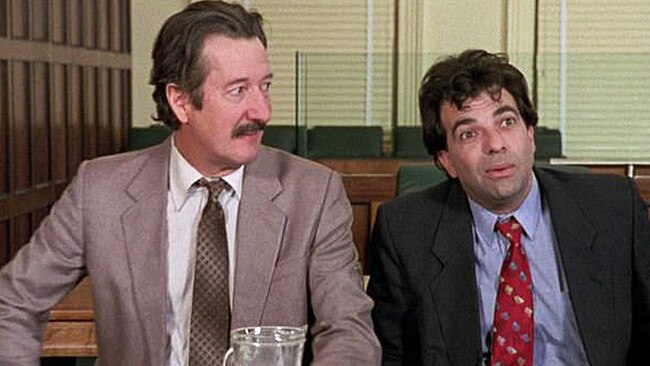
It promised to introduce a new era of rights-respecting governance by forcing public authorities to act in ways that are compatible with human rights.
That obligation was considered to be so important it was outlined in the charter’s first provision – which should have made it difficult for government agencies to ignore.
Yet that seems to be exactly what has happened at the Aboriginal Heritage Council, which has drawn up a plan that seems difficult to reconcile with two of the charter’s most important provisions.
This organisation, which is an agency of the Department of Premier and Cabinet, has urged the government to change the Aboriginal Heritage Act to empower officials to enter land without permission.
Compare this to section 13 of the charter which says a person’s privacy and family home shall not be arbitrarily interfered with; and section 20 which protects property rights.
These ideas have a proud history that found expression in the brilliant film The Castle which happened to be set in working class Melbourne.
According to the lead character, Darryl Kerrigan: “A man’s home is his castle … you can’t just walk in and steal our home.”
In a perfect world, that would be a compete statement of the law. But in modern Australia, that ideal is under attack.
Victoria’s charter is empty words. And people in that state who now fear an influx of uninvited bureaucrats can draw no comfort from the federal Constitution.
None of the states are subject to the guarantee in section 51(xxxi) of the Constitution that requires the Commonwealth to pay compensation in just terms whenever it acquires property from individuals.
Even if section 51(xxxi) did apply to the states, that provision has been interpreted in a way that limits its protection of property rights.
In the Franklin Dam case in 1983, the High Court decided that the mere extinguishment of rights did not, in itself, amount to an acquisition of property. The Commonwealth had merely prevented the use of land for specific purposes.
That might be what the Constitution requires, but is it just?
Property rights mean much more than title to land. They include a bundle of associated rights such as the right to exclude others, the right to put land to productive use and the right to control what happens on privately owned land.
It is this aspect of property rights that is under attack – and not just in Victoria.
The proposal from the Aboriginal Heritage Council would erode property rights in order to give effect to what it believes is a greater good – the freedom to investigate Aboriginal heritage without concern for the rights of others.
But Indigenous leaders who would wind back property rights to benefit Indigenous officials, should keep in mind that Indigenous people are among those who could suffer most if this right continues to be weakened.
Thanks to the advocacy of Indigenous leader Noel Pearson, Queensland eventually repealed its 2005 Wild Rivers Act that would have stymied the development of Indigenous enterprises in order to leave selected areas in their natural state.
Pearson’s argument at the time was that the Wild Rivers legislation imposed layers of red tape on communities and individuals seeking to start small-scale enterprises on land covered by native title – a form of title that now covers 40 per cent of the country.
Before becoming Human Rights Commissioner, Lorraine Finlay argued that governments were attacking property rights.
She told a 2010 conference of the Samuel Griffith Society that this attack had been particularly pronounced in rural and regional Australia where farmers had been forced to comply with an increasingly complicated, stringent and punitive legal regime of restrictive conservation and environmental regulations.
Property rights however, like most human rights, are not absolute, which was apparent in 1215 when Magna Carta was sealed at Runnymede in England.
Article 39 of the Great Charter guarantees that property will not taken by the state in an arbitrary manner.
It says: “No freeman shall be … deprived of his freehold or in any way molested … unless by the lawful Judgement of his peers and by the law of the land.”
That goes to the heart of what is wrong with is the proposal from the Aboriginal Heritage Council. Should it go ahead? And should it go ahead in such a laissez faire manner?
Landholders would retain formal title, but the bundle of rights associated with their property would be wound back.
Significantly, the Heritage Council makes no mention of any external check on these proposed powers. There is no mention of the judicial oversight to which police are subjected when they seek search warrants.
With few exceptions, police in Victoria can only enter property with the occupier’s permission or if they can persuade a magistrate there are reasonable grounds to believe there is evidence connected with an indictable offence.
The Heritage Council seems to believe heritage officials should have right of entry powers that go beyond those exercised by police when investigating indictable offences.
This is not just disproportionate. It is a reversion to the sort of arbitrary power over privacy and property rights that was disavowed by England’s King John when he sealed Magna Carta more than 800 years ago.
State power, when exercised by police, is subject to an independent check and is balanced against the rights of ordinary people as reflected in law. This protects human rights in a way that Victoria’s charter of rights does not.
Chris Merritt is vice-president of the Rule of Law Institute of Australia




Victoria’s Charter of Human Rights and Responsibilities Act is fast emerging as one of the greatest examples of legislative deception.